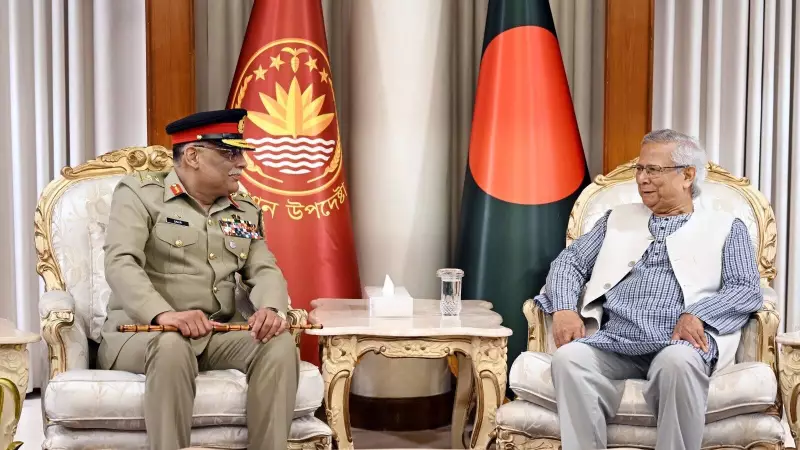
In a development that has captured regional attention, Pakistan's high-ranking military official General Shamshed Mirza engaged in a pivotal meeting with Nobel Peace Prize recipient Muhammad Yunus during his official visit to Bangladesh. This encounter marks a significant moment in the complex tapestry of South Asian diplomacy.
Strategic Diplomacy in Action
The meeting between Pakistan's powerful army general and Bangladesh's celebrated economist and social entrepreneur suggests a potential recalibration of bilateral relations between the two nations. General Mirza, serving as Pakistan's ambassador-at-large, represents the military establishment's growing involvement in diplomatic outreach.
Economic Cooperation Takes Center Stage
Sources familiar with the discussions indicate that the conversation primarily focused on economic collaboration and regional stability. Muhammad Yunus, renowned for his pioneering work in microfinance and poverty alleviation through Grameen Bank, brings substantial economic expertise to the table.
The timing of this meeting is particularly noteworthy, occurring against the backdrop of Bangladesh's remarkable economic growth and Pakistan's ongoing economic challenges. Both nations appear to be exploring mutually beneficial partnerships that could address shared regional concerns.
Historical Context and Future Implications
Pakistan-Bangladesh relations have navigated complex historical waters since Bangladesh's independence in 1971. This high-level engagement signals a potential warming of ties and demonstrates Pakistan's strategic interest in strengthening relationships within South Asia.
The involvement of military leadership in diplomatic initiatives reflects Pakistan's unique governance structure, where the army plays a significant role in foreign policy matters. General Mirza's position as ambassador-at-large underscores the military's continued influence in shaping the country's international relationships.
Regional Stability and Economic Development
Observers suggest that the discussion likely encompassed:
- Potential economic partnerships and investment opportunities
- Regional security concerns and cooperation mechanisms
- Collaborative efforts in poverty alleviation and social development
- Cultural and educational exchanges between the two nations
This diplomatic engagement comes at a crucial juncture as both countries seek to enhance their regional standing while addressing domestic economic priorities. The participation of a Nobel Laureate in such discussions adds considerable weight to the proceedings and suggests a focus on sustainable development goals.
What This Means for South Asian Politics
The meeting represents more than just bilateral diplomacy—it potentially signals shifting alliances and cooperation patterns in South Asia. As regional powers recalibrate their foreign policies, such high-profile engagements could pave the way for increased economic integration and political cooperation.
While specific outcomes of the meeting remain confidential, the very occurrence of such dialogue indicates a willingness from both sides to explore new avenues of cooperation. This development warrants close observation by regional analysts and policymakers alike.





